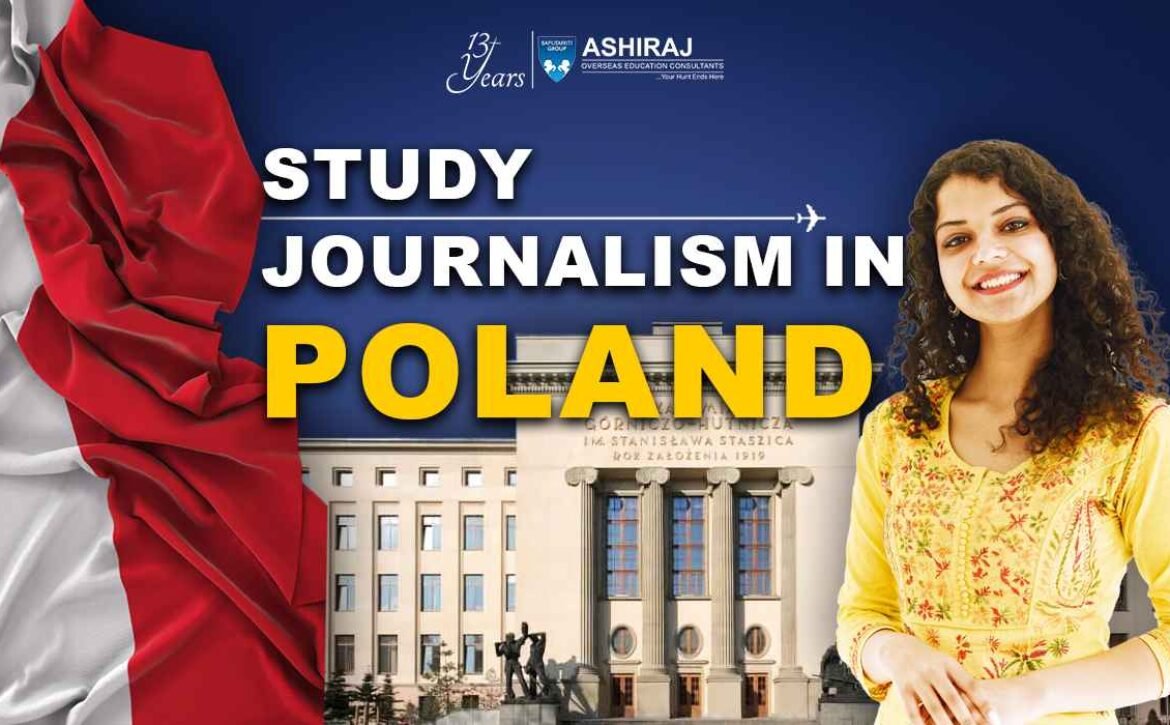
Journalism in Poland
In the heart of Europe, Journalism in Poland stands as a testament to the nation’s rich history, vibrant culture, and steadfast commitment to freedom of the press. With a tradition deeply rooted in democratic principles, Polish journalism serves as a vital pillar of society, shaping public discourse and holding power to account. From the tumultuous years of communist rule to the present-day digital age, Polish journalists have navigated complex narratives with courage and resilience, reflecting the diverse voices and perspectives of the Polish people.
Journalism in Poland encompasses a dynamic landscape, encompassing traditional print media, television, radio, and emerging digital platforms. With a growing emphasis on investigative journalism and multimedia storytelling, Polish journalists continually adapt to the evolving media landscape, leveraging technology to engage audiences and amplify their impact. As Poland continues its journey of democratic consolidation and economic development, journalism remains a cornerstone of its democratic institutions, reflecting the nation’s unwavering commitment to press freedom and transparency.
Why to Study Journalism in Poland?
- Rich Cultural Heritage: Journalism in Poland offers students the opportunity to immerse themselves in a country with a rich cultural heritage and a deep appreciation for freedom of expression, providing a unique backdrop for academic and professional growth in Journalism in Poland.
- Dynamic Media Landscape: Poland boasts a dynamic media landscape, with a blend of traditional print media, television, radio, and rapidly evolving digital platforms. Studying journalism here allows students to gain exposure to diverse media outlets and storytelling techniques, preparing them for careers in the modern media industry.
- Quality Education: Polish universities offer high-quality journalism programs taught by experienced faculty members with extensive industry experience. Students benefit from rigorous academic training, practical hands-on experience, and opportunities for internships at leading media organizations.
- European Perspective: Located in the heart of Europe, studying journalism in Poland provides students with a European perspective on global issues, enhancing their understanding of international affairs and cross-cultural communication.
- Career Opportunities: Graduates of journalism programs in Poland are well-equipped to pursue rewarding careers in media, communication, public relations, and related fields, both domestically and internationally. The skills and knowledge gained through studying journalism in Poland open doors to diverse career opportunities in the ever-evolving media landscape.
Top Universities to Study Journalism in Poland
University | QS World University Rankings 2023 | Type of University | Average Annual Fees (PLN) | Programs Offered |
University of Warsaw | 1st | Public | 8,000 – 12,000 | Bachelor in Journalism, Master in Journalism |
Jagiellonian University | 2nd | Public | 7,000 – 11,000 | Bachelor in Journalism and Social Communication |
Adam Mickiewicz University | 3rd | Public | 6,000 – 10,000 | Bachelor in Journalism and Social Communication |
Warsaw School of Economics | 4th | Public | 9,000 – 13,000 | Bachelor in Journalism and New Media, |
Master in Journalism and Social Communication | ||||
University of Wroclaw | 5th | Public | 7,000 – 12,000 | Bachelor in Journalism and Social Communication, |
Master in Journalism and Media Production |
Studying journalism in Poland offers students a wide array of options, with several top universities providing comprehensive programs tailored to meet industry demands. The University of Warsaw tops the list, renowned for its Bachelor and Master programs in Journalism. Jagiellonian University and Adam Mickiewicz University also offer robust programs in Journalism and Social Communication. Warsaw School of Economics stands out with its focus on Journalism and New Media at both undergraduate and postgraduate levels. University of Wroclaw offers diverse programs covering journalism and media production, ensuring graduates are well-prepared for the dynamic field of Journalism in Poland.
Course Curriculum for Journalism in Poland
- Foundational Courses: Journalism programs in Poland typically begin with foundational courses covering media history, ethics, and principles of journalism, providing students with a solid understanding of the profession’s fundamentals in Journalism in Poland.
- Multimedia Skills: Recognizing the importance of multimedia storytelling, courses often include training in digital media production, photojournalism, video editing, and social media management, equipping students with diverse skills for modern journalism practices.
- Specialized Reporting: Students delve into specialized reporting areas such as politics, culture, economics, and investigative journalism, gaining expertise in covering diverse beats and developing a deeper understanding of societal issues in Poland.
- Internship Opportunities: Many programs offer internship opportunities at leading media organizations, allowing students to apply theoretical knowledge in real-world settings and gain valuable industry experience, enriching their Journalism in Poland studies.
- Ethics and Legal Issues: Given the importance of ethics and legal compliance in journalism, courses cover topics such as media law, defamation, privacy rights, and responsible reporting practices, ensuring graduates uphold the highest standards of integrity in their work.
- Capstone Projects: Programs often culminate in capstone projects or final-year dissertations, where students demonstrate their research and reporting skills by tackling in-depth investigative projects or producing multimedia features, showcasing their readiness to enter the field of journalism in Poland and beyond.
Eligibility Criteria & Admission Requirements for MS in Journalism in Poland
- Language Proficiency: Applicants must demonstrate proficiency in English by providing scores for either IELTS or TOEFL. Minimum scores typically range from 6.5 to 7.0 for IELTS and 90 to 100 for TOEFL.
- Standardized Tests: Some universities may require scores for either GRE or GMAT as part of the application process. Minimum scores vary, generally ranging from 310 to 320 for GRE and 600 to 700 for GMAT.
- Educational Background: Applicants should hold a bachelor’s degree from a recognized institution, preferably in a relevant field such as journalism, communications, or media studies.
- Passport & Student Visa: International students are required to possess a valid passport and obtain a student visa to study in Poland. The visa application process typically requires proof of acceptance from a recognized institution and sufficient financial resources to support living expenses.
- Academic Certificates: Applicants must provide transcripts and certificates verifying their academic qualifications, including their bachelor’s degree and any relevant postgraduate qualifications.
- Work Experience: While not always mandatory, relevant work experience in journalism or related fields may strengthen an applicant’s candidacy, demonstrating practical skills and industry knowledge.
Table: Required Scores for Language Proficiency and Standardized Tests
Test | Minimum Score |
IELTS | 6.5 – 7.0 |
TOEFL | 90 – 100 |
GRE | 310 – 320 |
GMAT | 600 – 700 |
Ensuring compliance with these eligibility criteria is essential for prospective students aspiring to pursue journalism in Poland, facilitating a smooth application process and entry into reputable institutions offering quality education in Journalism in Poland.
Documents Required for Studying Journalism in Poland
- Passport: A valid passport is essential for international students applying to study journalism in Poland. It serves as proof of identity and nationality throughout the application process and during their stay in the country.
- Letters of Recommendation (LOR): Two letters of recommendation from academic or professional sources are typically required. These letters attest to the applicant’s character, abilities, and suitability for the journalism program.
- Statement of Purpose (SOP): The SOP is a personal essay outlining the applicant’s motivations, career goals, and reasons for choosing to study journalism in Poland. It provides insight into the applicant’s aspirations and helps admissions committees assess their suitability for the program.
- Curriculum Vitae (CV): A comprehensive CV detailing the applicant’s academic background, work experience, achievements, and extracurricular activities is required. It provides a snapshot of the applicant’s qualifications and accomplishments.
- Official High School Transcripts and Educational Certificates: Applicants must submit transcripts and certificates from their high school or equivalent institution, demonstrating their academic achievements and qualifications for higher education.
- Work Experience Certificate: If applicable, a work experience certificate detailing the applicant’s professional experience in journalism or related fields may be required. It serves to validate the applicant’s practical skills and industry knowledge.
- Proof of Financial Resources: Applicants must provide evidence of sufficient financial resources to cover tuition fees, living expenses, and other related costs for the duration of their journalism program in Poland. This may include bank statements, scholarship awards, or sponsorship letters.
Ensuring the timely and accurate submission of these documents is crucial for prospective students applying to study Journalism in Poland. Adhering to the specified requirements enhances the chances of a successful application and admission to reputable institutions offering quality education in Journalism in Poland.
Admission Process for Journalism in Poland
1: Research Programs: Begin by researching journalism programs offered by universities in Poland. Consider factors such as curriculum, faculty expertise, and campus facilities to find the best fit for your academic and career goals in Journalism in Poland.
2: Check Eligibility: Review the eligibility criteria for each program, including academic requirements, language proficiency exams (IELTS or TOEFL), standardized test scores (GRE or GMAT), and submission of required documents. Ensure you meet all prerequisites before proceeding with the application.
3: Prepare Documents: Gather the necessary documents for your application, including transcripts, recommendation letters, statement of purpose, curriculum vitae, passport, proof of financial resources, and any additional requirements specified by the university.
4: Complete Online Application: Most universities in Poland offer online application portals. Fill out the application form carefully, providing accurate personal and academic information. Upload all required documents according to the specified format and guidelines.
5: Pay Application Fee: Pay the application fee as required by the university. Keep a record of the payment transaction for future reference.
6: Submit Application: Once you have completed the application form and uploaded all necessary documents, submit your application before the deadline. Ensure that you receive a confirmation of submission.
7: Await Admission Decision: After submitting your application, wait for the university to review your materials. Admission decisions may take several weeks to months, depending on the university’s application review process.
8: Acceptance and Enrollment: If accepted, you will receive an offer of admission from the university. Follow the instructions provided to accept the offer and complete the enrollment process, including payment of tuition fees and securing a student visa if applicable.
Following these steps diligently will streamline the admission process for studying Journalism in Poland, setting you on the path towards a rewarding academic journey in the field of journalism.
“Education is the most powerful weapon which you can use to change the world.”
Nelson Mandela
Cost of Journalism Course in Poland
- Tuition Fees: The cost of tuition for journalism programs in Poland varies depending on the university and the level of study. On average, undergraduate tuition fees range from PLN 8,000 to PLN 12,000 per academic year, while postgraduate fees can range from PLN 10,000 to PLN 15,000 per year.
- Living Expenses: Poland offers a relatively affordable cost of living compared to other European countries. Monthly living expenses for students, including accommodation, food, transportation, and other personal expenses, typically range from PLN 800 to PLN 1,500, depending on the city and lifestyle choices.
- Additional Costs: In addition to tuition and living expenses, students may need to budget for textbooks, study materials, health insurance, visa fees (if applicable), and extracurricular activities.
- Scholarship Opportunities: Some universities in Poland offer scholarships and financial aid to international students, helping to offset the cost of studying journalism. Students should research scholarship opportunities and eligibility criteria to determine if they qualify for financial assistance.
- Part-Time Work: International students in Poland are permitted to work part-time during their studies, which can help supplement their income and cover expenses. However, it’s essential to balance work commitments with academic responsibilities.
Understanding the cost of studying journalism in Poland is crucial for prospective students planning their education abroad. By budgeting effectively and exploring financial aid options, students can make informed decisions and pursue their academic goals in Journalism in Poland without financial strain.
Scholarships for Journalism Courses in Poland
Scholarship Name | Amount | Application Deadline |
Polish National Agency for Academic Exchange (NAWA) Scholarship | Full tuition fees, monthly stipend, and other benefits | Varies (usually March or April) |
University Scholarships | Varies | Varies by university |
Ministry of Education Scholarships | Varies | Varies by institution |
Scholarships for Journalism in Poland offer financial assistance to deserving students pursuing undergraduate or postgraduate degrees in journalism or related fields. The Polish National Agency for Academic Exchange (NAWA) Scholarship provides full tuition fees, a monthly stipend, and other benefits to international students. Application deadlines for NAWA scholarships typically fall in March or April annually, so students should plan accordingly and submit their applications before the deadline to be considered for financial aid. Additionally, many universities in Poland offer their scholarships, with varying amounts and application deadlines. The Ministry of Education also provides scholarships to eligible students, with deadlines varying by institution. These scholarships provide valuable support to students pursuing their academic goals in Journalism in Poland, helping to alleviate the financial burden of higher education.
Career Opportunities After Journalism in Poland
Job Profile | Average Salary (PLN) |
Journalist | 3,500 – 5,000 |
News Reporter | 4,000 – 6,000 |
Multimedia Journalist | 4,500 – 6,500 |
Editor | 5,000 – 7,000 |
Broadcast Journalist | 5,500 – 7,500 |
Digital Content Producer | 5,000 – 7,000 |
Public Relations Specialist | 6,000 – 8,000 |
Communications Manager | 7,000 – 9,000 |
Journalism in Poland offers a diverse range of career opportunities for graduates, spanning traditional and digital media platforms. Journalists play a crucial role in gathering and disseminating news and information, with average salaries ranging from PLN 3,500 to PLN 5,000 per month. News reporters and multimedia journalists, specializing in different forms of storytelling, can earn between PLN 4,000 to PLN 6,500 monthly. Editors, responsible for overseeing content production and ensuring editorial quality, typically earn salaries ranging from PLN 5,000 to PLN 7,000 per month. Broadcast journalists, involved in reporting news through television or radio, can earn between PLN 5,500 to PLN 7,500 monthly. Digital content producers, focused on creating online content, earn salaries ranging from PLN 5,000 to PLN 7,000 monthly. Public relations specialists and communications managers, managing organizational communications and media relations, can earn between PLN 6,000 to PLN 9,000 monthly, depending on experience and industry. With a journalism degree in Poland, graduates can pursue rewarding careers in media, communication, public relations, and related fields, contributing to the vibrant media landscape of the nation.
Frequently Asked Questions About Journalism in Poland
Some top universities offering journalism programs in Poland include the University of Warsaw, Jagiellonian University, and Adam Mickiewicz University.
Eligibility criteria typically include a bachelor’s degree, language proficiency (IELTS or TOEFL), standardized test scores (GRE or GMAT), and submission of required documents such as transcripts, recommendation letters, and a statement of purpose.
Yes, several scholarships are available for journalism students in Poland, including the Polish National Agency for Academic Exchange (NAWA) Scholarship and university-specific scholarships.
The cost varies depending on the university and program, but on average, tuition fees range from PLN 8,000 to PLN 15,000 per year for undergraduate and postgraduate programs.
Graduates can pursue careers as journalists, news reporters, editors, multimedia journalists, public relations specialists, communications managers, and more.
Yes, international students in Poland are permitted to work part-time during their studies, typically up to 20 hours per week during the academic year and full-time during breaks.
The admission process involves researching programs, checking eligibility criteria, preparing documents, completing the online application, paying the application fee, submitting the application, awaiting admission decision, and accepting the offer if accepted.
Many journalism programs in Poland offer internship opportunities at leading media organizations, providing students with practical experience and industry exposure.
Most journalism programs in Poland are conducted in Polish, but some universities offer programs in English to accommodate international students.
Yes, there is a demand for journalists in Poland, with opportunities available in print, broadcast, digital media, public relations, and corporate communications sectors.




